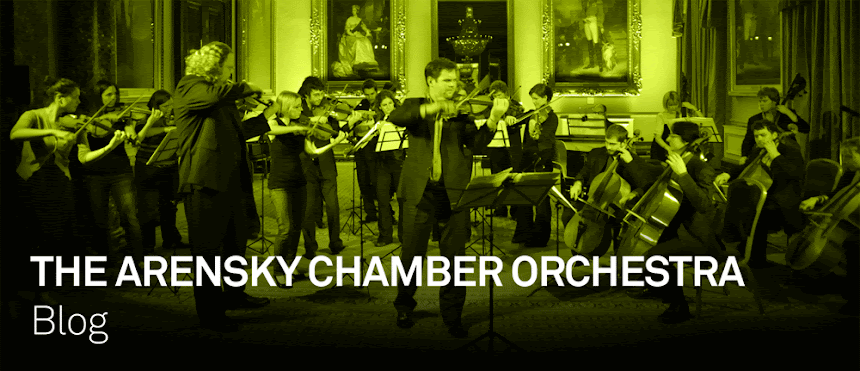The next concert by the ACO (March 17th) will be highlighting the work of Swedish composer Albert Schnelzer, who is one of the rising stars in the world of contemporary music. Schnelzer's music has been described as "forwardgoing", "aggressive", "instrumentally demanding" but also as "fragile and vibrating" and "an aesthetic that is more about personal expression than being modernistically correct". The Music Press have praised his inventiveness and personal musical language and he has a firm reputation among musicians for his idiomatic, but at the same time highly original, style.
Albert Schnelzer has openly declared that communication is a key element in his music and he explains with his own words: "For me, there are basically two primary activities in human music history: dancing and singing. Therefore, I have worked intensively with developing somewhat neglected elements such as pulse, meter and melody. Gaining complexity by combining simple musical elements has always been very interesting to me".
We decided to ask him a few questions about the work we’ll be performing: “Emperor Akbar”, which is based on his second string quartet, written for the Brodsky Quartet.
I understand your musical background is quite diverse – you describe your solo piano work Dance with the Devil as "a cross between Franz Liszt and Iron Maiden". What got you into composing?
I think I started to improvise the first time I sat at an instrument (probably a piano). It came very naturally and has never been anything I have given much thought, really. The problems came later when I wanted to notate what I was playing. It wasn't until my early teens that I successfully could write down my ideas and actually notate everything I played or improvised. My main instrument is the piano but I have always considered my instrument as a tool for composing rather than anything else.
Your works are often titled according to what inspired the music. Do you think it is important for the audience to understand the creative process behind them?
I don't think the audience necessarily need to understand the creative process behind a certain piece. I do believe that titles and programme notes can help the listener in understanding why the music sounds like it does. Just like a book or a film title will give you a hint of what to expect or maybe just make you curious!
Is it important for composers today to bring wider experiences into their works, more than it may have been in the past?
I think that composer always have brought their experience into their works, regardless of what era they lived. Today’s composer have likely heard more different genres but not necessarily experienced more music. Remember that 100 or 200 years ago there was no television and many people played together instead of playing online computer games or watching reality shows! The process of composing hasn't changed much through the centuries though. It's still very much sitting alone with pen and paper and trying to put down the ideas you hear in your head.
Your piece in our concert on 17th March was inspired by the depiction of Emperor Akbar in Salman Rushdie’s novel The Enchantress of Florence. What drew you to this character?
I'm a big fan of Salman Rushdie’s writing and it constantly gives me new inspiration for my own music. Mr Rushdie has actually been described as a master of "orchestrating" his prose and I see many similarities between how he uses the language and how I try to compose my music. Emperor Akbar, or Akbar the Great is a real historical figure and lived 1542-1605. In the novel he appears as a very mixed personality that proclaims freedom of speech and democracy but also make use of extreme violence if necessary. It was very tempting to trying to "capture" this type of personality in music and mix these extremes in the same piece.
Does your work describe a specific scene, or is it a more general reflection on the character of the historical Emperor?
The piece is generally a reflection of the Emperor's character, although the first violent chord is inspired by a very specific scene in the novel where the Emperor decapitates a young rebel (despite the fact that he agrees with the rebel’s view on democracy!).
Where’s the strangest place your music has been performed?
The strangest place was probably more than 15 years ago when I was still a composition student at the Malmö Academy of Music. My music was performed in a park right next to the area where the dogs are allowed to defecate! I was asked to write something for the opening of a big contemporary art installation and I wrote a piece for 3 percussionists, deciduous forest, lamp-post, waste-paper basket and latrine barrel (!). These were all objects that were found next to the dog’s area and during the performance (that I conducted!) we had very an interesting sounding "support" from the dogs. It is still unclear if they appreciated the new music, but it was nonetheless an interesting experience...
Albert Schnelzer will be saying more about his music at our pre-concert reception for participants of the ACO Member's Scheme on the 17th March.
